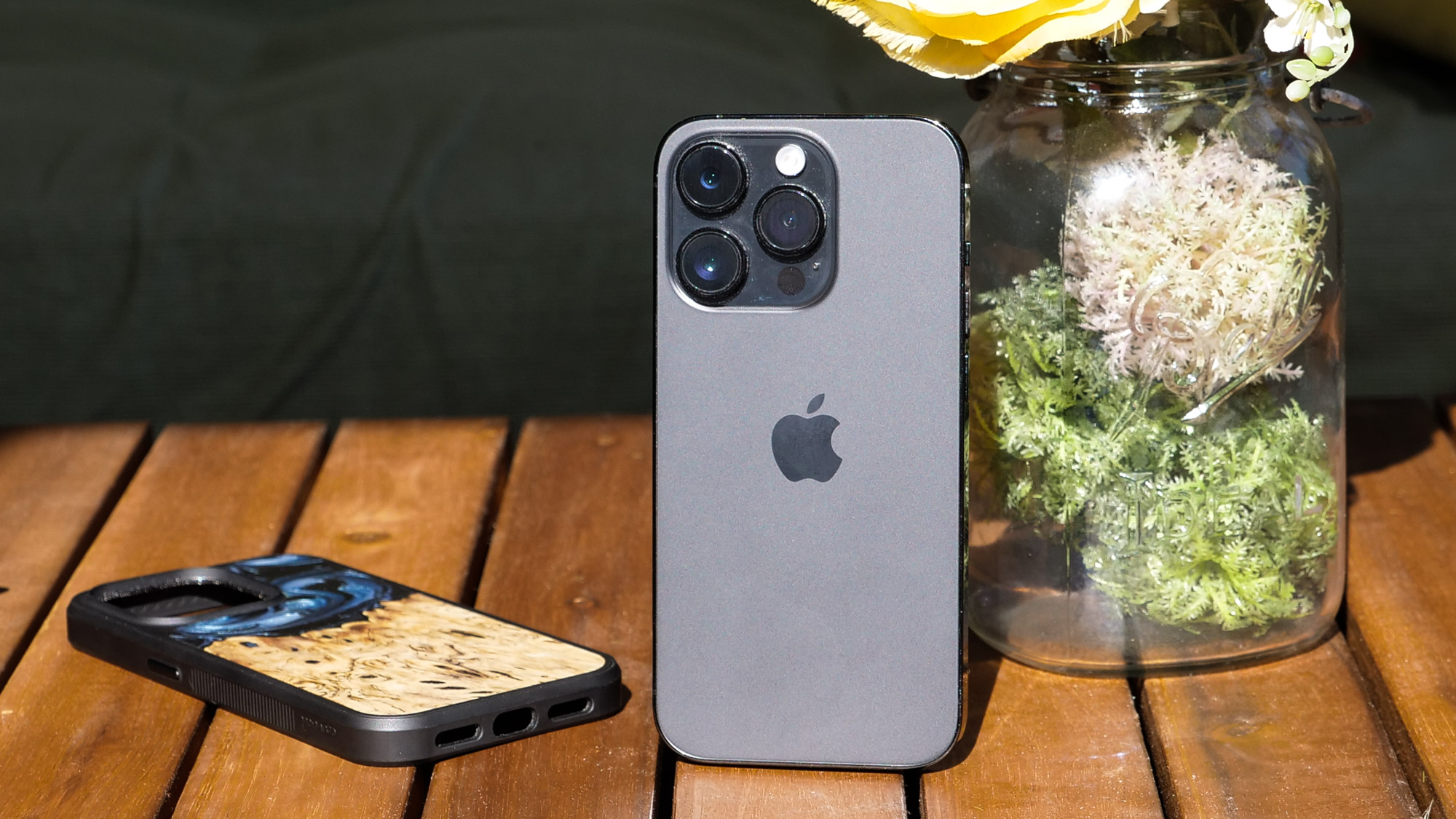
Price: $999
OS: iOS 16
Display: 6.1-inch (2556 x 1179) Super Retina XDR OLED with ProMotion (up to 120Hz)
CPU: Apple A16 Bionic
RAM: 6GB
Rear cameras: 48MP wide (ƒ/1.8); 12MP ultra-wide (f/2.2); 10MP 3x telephoto (f/2.4)
Front camera: 12MP (f/1.9)
Storage: 128GB/256GB/512GB/1TB
Battery: 10:13
Size: 5.8 x 2.8 x 0.3
Weight: 7.3 ounces
As we edge towards the midpoint of the year, we wanted to take a look at how the iPhone 14 Pro is holding up after months of use, and whether you should consider holding off for the iPhone 15 if you are considering a new phone right now.
Some things haven’t changed since our first impressions of the iPhone 14 Pro last year — it still has a bright and sharp display, incredible performance, and phenomenal video capture. However, there are more knocks against the Pro than we’ve had in years past. Battery life is disappointing, photos aren’t up to the same standard despite improved hardware, and the Ceramic Shield display isn’t holding up well.
Depending on your needs, the iPhone 14 Pro is still one of the best phones out there, but it’s a far more qualified recommendation. If you are considering the iPhone 14 Pro, I would strongly recommend that you opt for the iPhone 14 Pro Max instead, or wait to see what Apple has in store
iPhone 14 Pro price and configurations
The iPhone 14 Pro sticks to the same $999 starting price that Apple has maintained since the 11 Pro. The base model features 128GB of storage, but if you are a prolific mobile photographer or videographer, or just a digital hoarder, you can bump that up to 1TB for $1,499.
Color options are a little more staid on the Pro, as always, with Deep Purple as the wildcard option this year, while the familiar Gold, Silver, and Space Black round out the list.
While most people can probably get by with 128GB on a phone, if you are spending $999 on an iPhone then I assume you are a more active phone user than most and I would recommend that you consider spending $1,099 on the 256GB model. That also unlocks the ability to use Apple ProRes if you are looking to take full control of your mobile video.
iPhone 14 Pro design
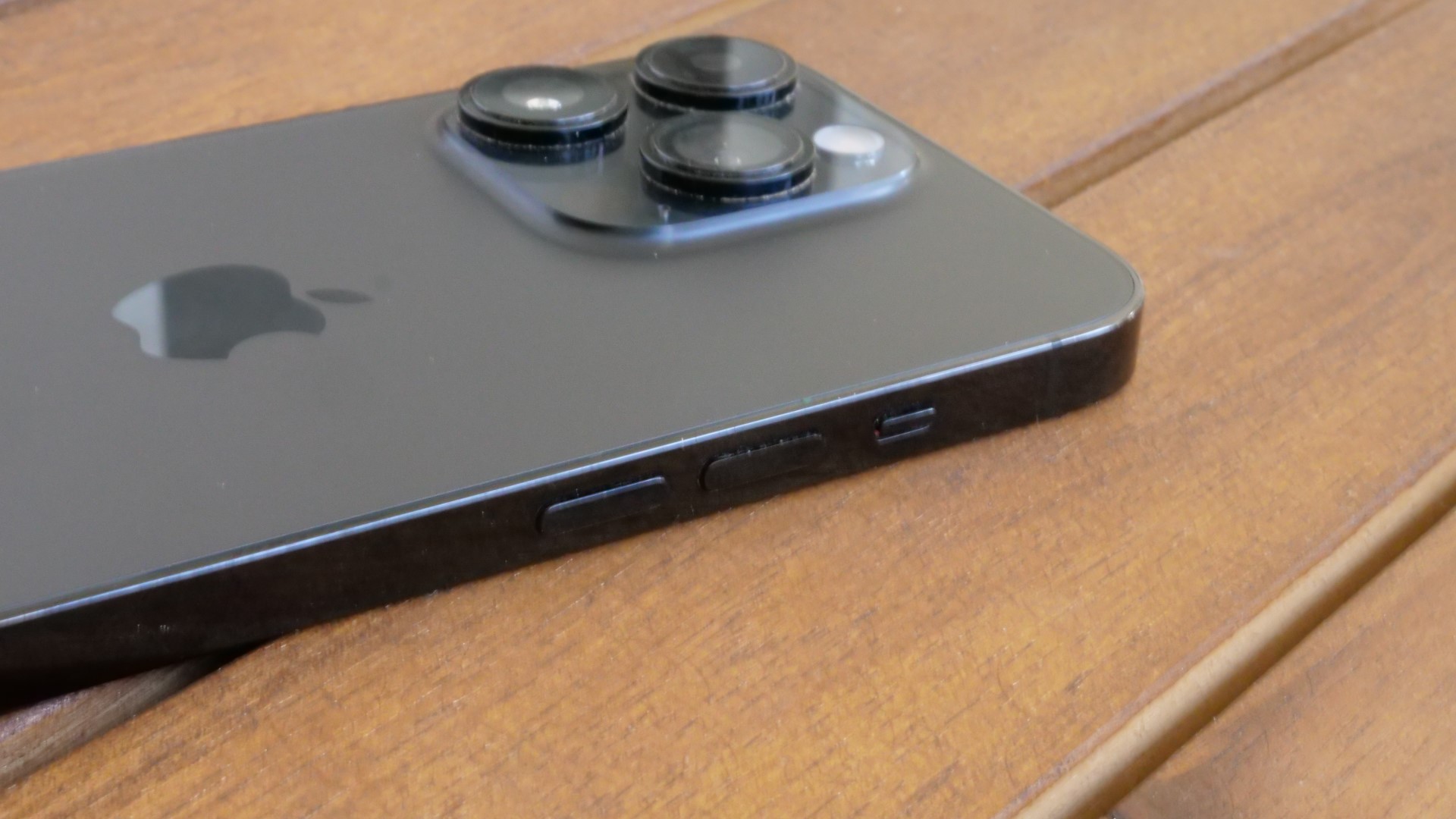
Look anywhere but the screen and you would be hard-pressed to pick the iPhone 14 Pro out of a lineup with the iPhone 12 Pro and iPhone 13 Pro. Apple’s throwback squared-off design aesthetic isn’t going anywhere and while it’s not my favorite smartphone design, that’s a personal preference.
However, as soon as you power that display on — or look at it closely with the display off — you are welcomed to Dynamic Island. Apple’s notch 2.0 replaces the iPhone’s peninsula at the top center of the display with a pill-shaped island. It’s a contentious change that to me is a sleight of hand trick to distract you from what remains an annoying blemish on the iPhone display.
I’ll be the first to grant Apple that integrating UX elements into it is a clever way to make you think it’s useful, but ultimately there’s still a big oval hole in your display that either interferes with content or shrinks the display to cover it. My hope for the Dynamic Island is that it gets dramatically more useful heading into 2024 as rumors suggest it is coming to all iPhone 15 models this fall and Apple is adding more extensive support for 3rd party developers to take advantage of the Dynamic Island in iOS 17.
Taking a spin around the rest of the phone, little has changed with the familiar stainless steel framing wrapping the phone and the premium matte finish of the back delivering exactly the attainable luxury look that Apple cultivates so well. Those squared stainless steel edges remain a slight irritation for those that opt to use the phone without a case, but that’s less of a problem on the smaller 14 Pro than the 14 Pro Max.
Speaking of size, here’s how the 14 Pro measures up against the competition. With its 6.1-inch display, the iPhone is notably smaller than its competitors, Apple is one of the few that offers a smaller flagship that is a spec-for-spec match with its larger counterpart — although that may end with the iPhone 15 Pro this year.
Six months in, I am far less impressed with Apple’s Ceramic Shield display coating. My phone has never been dropped, and the display shows more scratches than any device I’ve used in recent memory. Not so for the glass back, it has held up perfectly with no signs of wear.
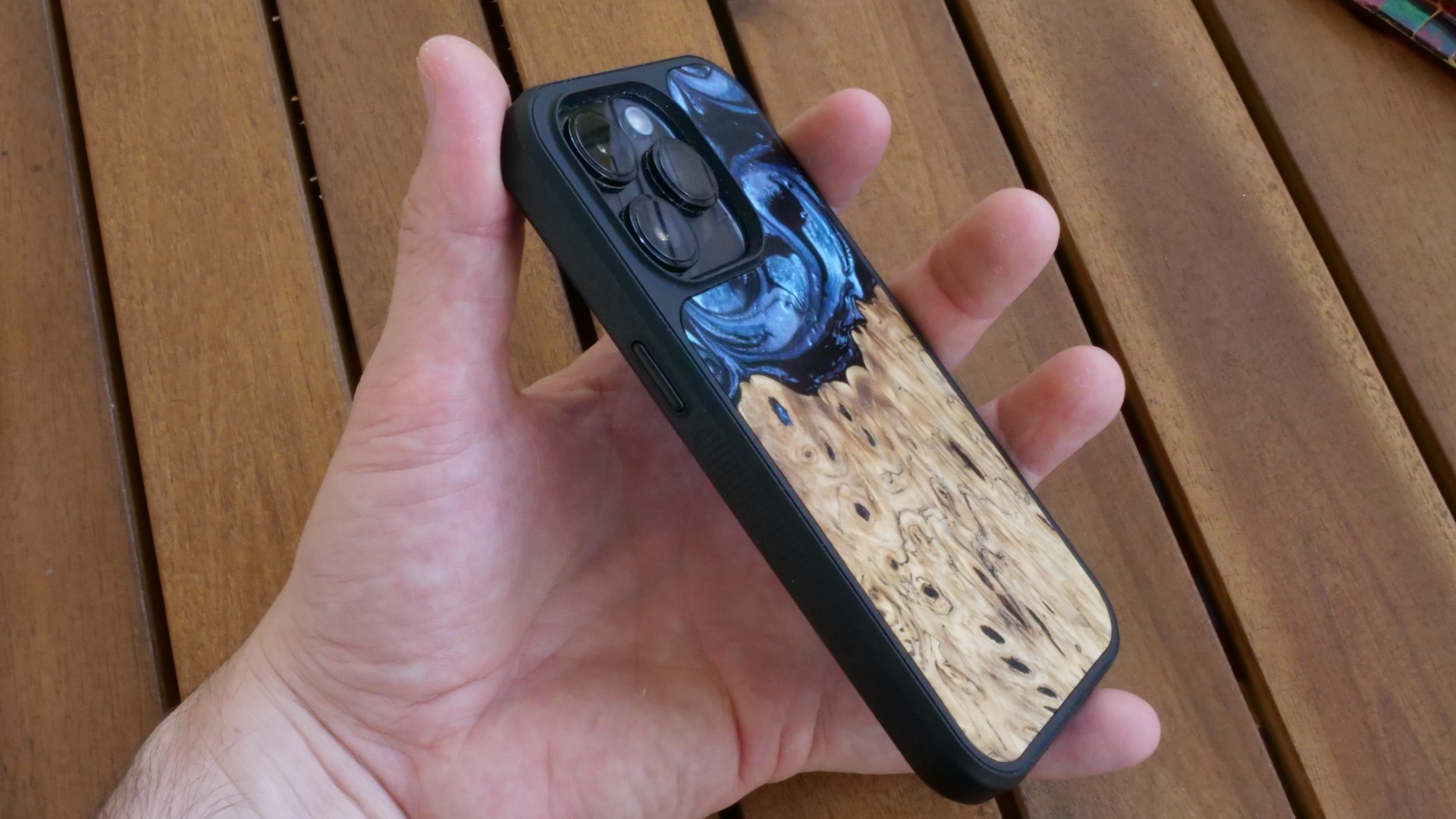
If the feel of the phone in your hand — or the desire to not break your $1,000 and up phone — didn’t motivate you to put a case on the iPhone 14 Pro then perhaps the massive camera array on the back will do it. The triple cameras emerging from the top left corner of the phone prevent it from laying flat on a surface and always leave me slightly nervous that the camera glass will be scratched, but the latter hasn’t happened. Opting for a case, like the Carved case shown above, eliminates the problem.
After three generations of this design — Dynamic Island aside — I think Apple would do well to rethink some of the ergonomics to make the phone more comfortable to hold and hopefully another upgrade is in store for the Ceramic Shield coating this year. However, given the leaks that we’ve seen about the iPhone 15, I’m not getting my hopes up for any groundbreaking design changes.
iPhone 14 Pro display
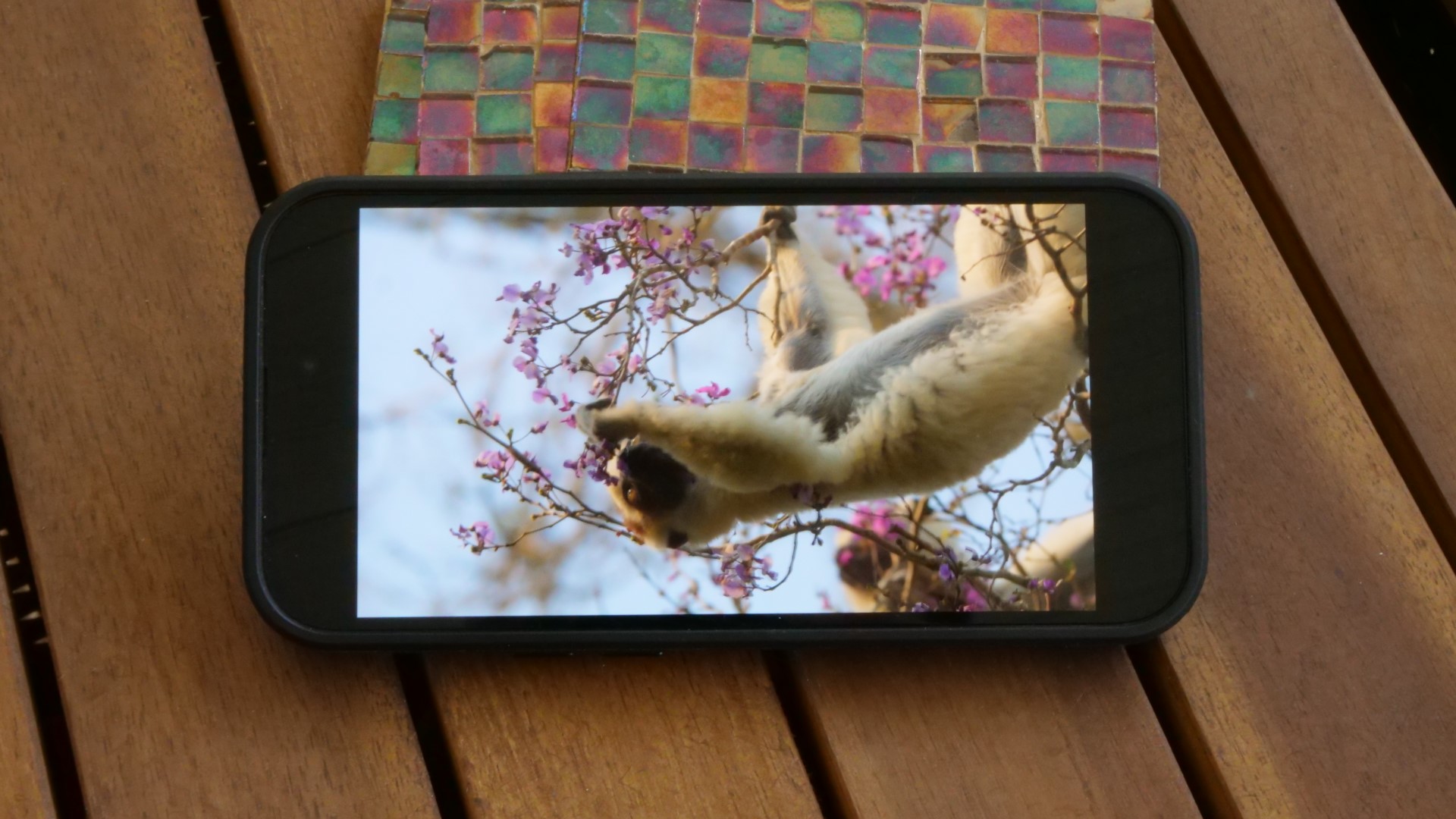
Apple doesn’t skimp on iPhone displays, opting for some of the best Samsung panels on the market, and the iPhone 14 Pro’s 6.1-inch Super Retina XDR OLED display with its adaptive 120Hz refresh rate and support for HDR10 and Dolby Vision is no exception.
I watched an episode of Our Planet on Netflix to test the HDR support and to check to see if the iPhone 14 Pro finally cracked an issue rendering some specific coloring that cropped up on the iPhone 12 Pro Max and iPhone 13 Pro. As I watched a fluffy white lemur happily crunching on some bright pink flowers, I was thrilled to see the punchy blue sky showing through the branches behind it. The backgrounds were inexplicably washed out in these shots in years past, but now the colors all look excellently realized. The sharp rendering also lets you see all of the individual hairs on the lemur’s belly, every tiny knot in the branches, and each gorgeous petal awaiting its date with the lemur’s maw.
While it doesn’t quite top all of its competitors, the iPhone 14 Pro display is astoundingly bright, falling only to the Galaxy S23 Plus. If you find yourself in an environment that is too bright to see your 14 Pro display then you should probably get out as I imagine a room that bright might be doing damage to your eyes.
Colors are wonderfully rendered on the iPhone 14 Pro, but for those that like vivid displays, the Android side will always have an edge as Apple doesn’t allow you to tune your panel. The iPhone delivers slightly more of the color gamut than the S23 Plus or Pixel 7 Pro in their “Natural” color setting, but the Samsung wildly outstrips it when using its Vivid mode and the same could be said for the Pixel in its Adaptive setting.
I like having the option, but rest assured you won’t be disappointed with the iPhone 14 Pro display (just maybe don’t look at it side-by-side next to your friend’s Samsung Galaxy S23 Plus).
iPhone 14 Pro audio
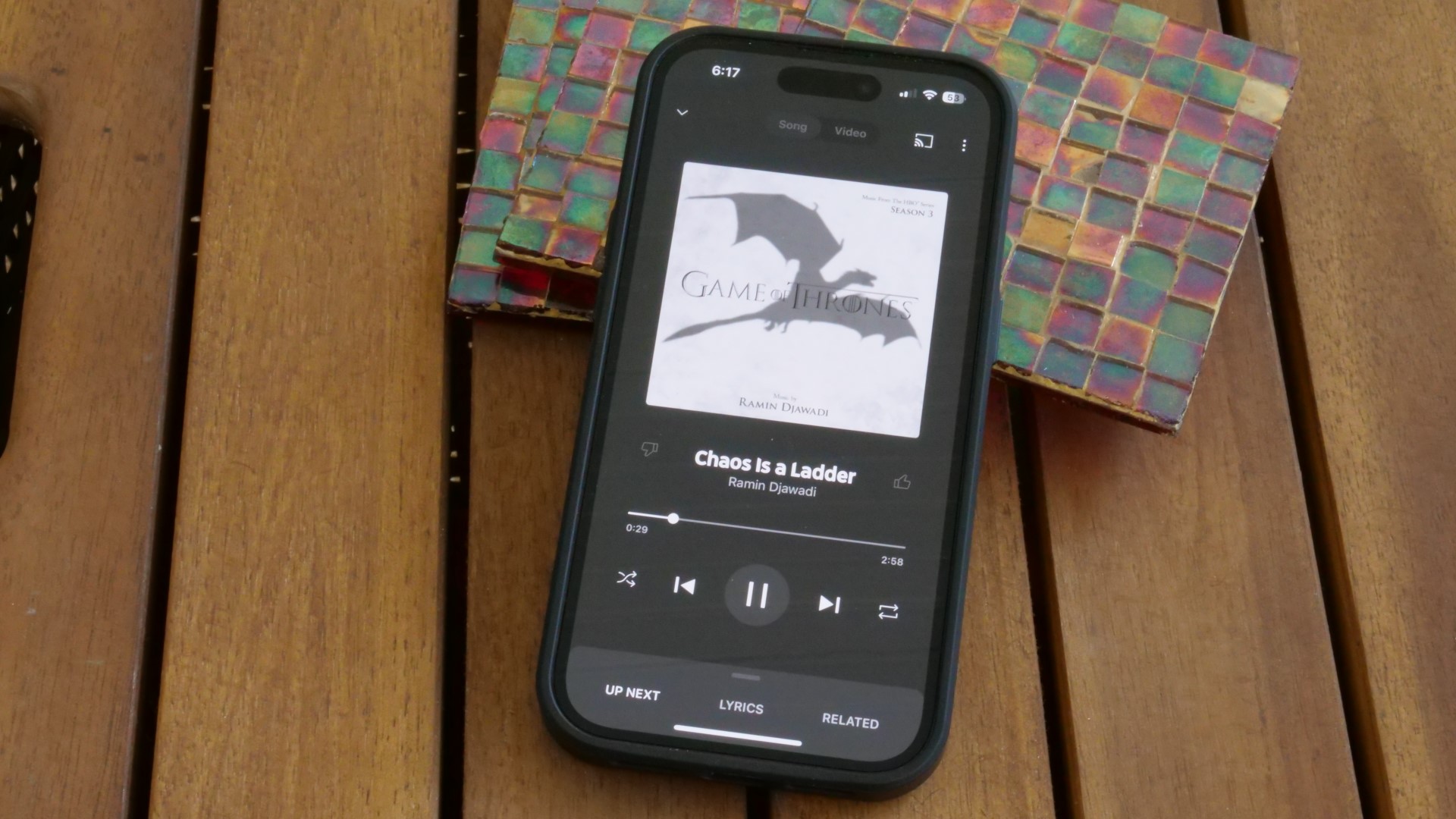
The iPhone 14 Pro’s stereo speakers are good for a smartphone, but there are limits to what can be achieved in such a tiny chassis. For video I find them more than adequate with solid clarity and volume so as I rewatch Breaking Bad for the first time in about eight years, I don’t miss any of the gritted face-offs between Walter and Mike or a well-punctuated “B***h!” from Jesse.
If you stick to mostly video and spoken word audio like podcasts or audiobooks, you’ll want for nothing from the iPhone 14 Pro speakers. Music shows its weaknesses though. Clarity and volume remain excellent, but listening to my film score playlist I landed on “Chaos Is a Ladder” from Game of Thrones and it struggled mightily with the overlapping complexity of that song. The rumbling bass that lays underneath was the chief problem, it sounded more like static than the deep reverberating tone that I know it to be from the Edifier computer speakers on my desk. (And before you say it, no GoT isn’t a film, I should send a strongly-worded message to the creator of that playlist.)
In the end, like any phone, you will get the best audio experience by picking up a pair of wireless headphones, but for quick snackable audio, the iPhone 14 Pro is just fine.
iPhone 14 Pro performance
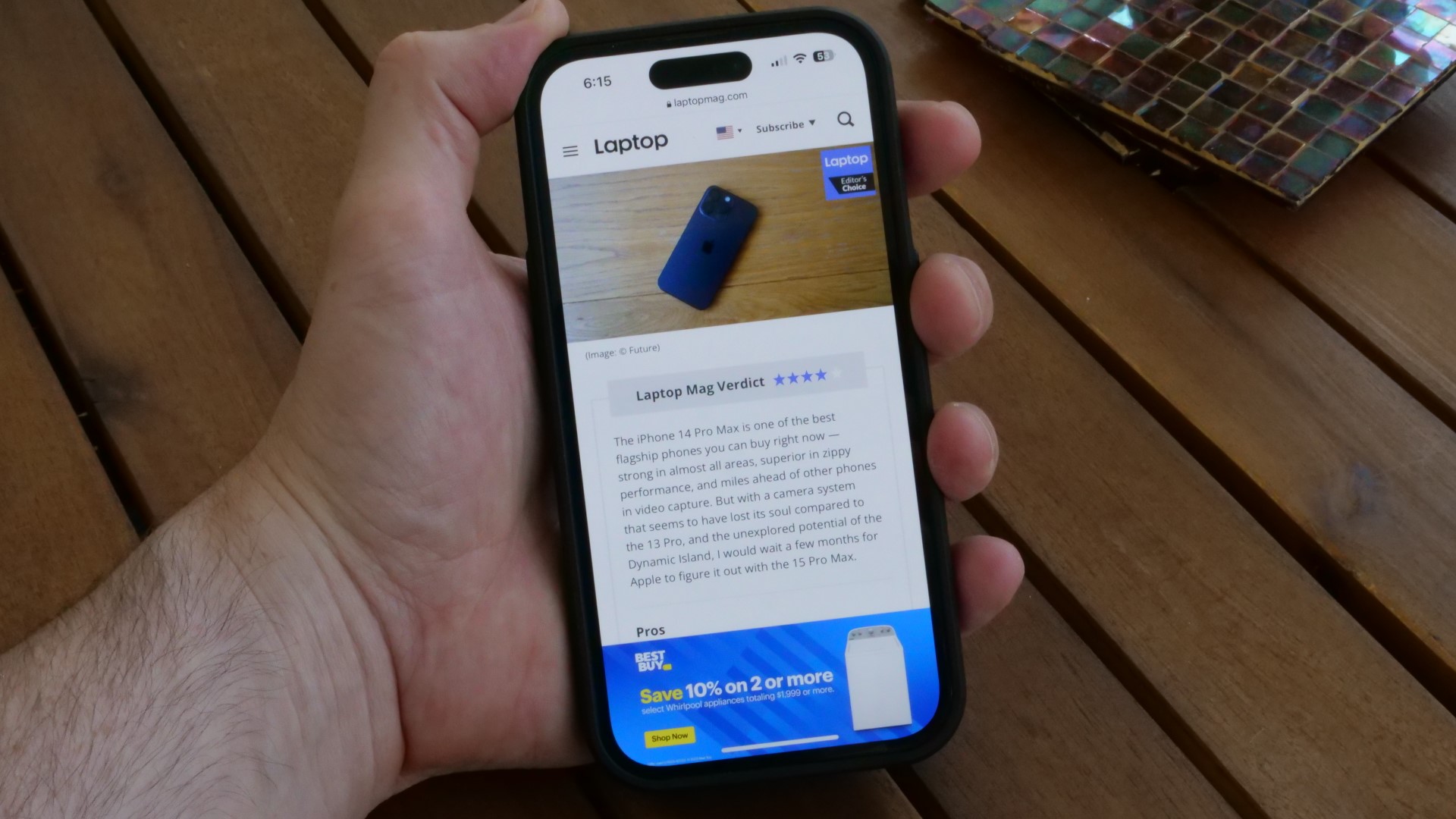
The iPhone 14 Pro is the most powerful iPhone ever, which if you’ve been keeping score at home also makes it the most powerful phone ever, but for the first time in years, there is a catch to that statement. Qualcomm’s Snapdragon 8 Gen 2 processor has taken a massive leap that narrows the gap in CPU performance and surpasses Apple’s Bionic A16 in GPU performance.
It’s a milestone for Android and Qualcomm, but not one that should tip the scales for your purchase in either direction. The reality for the last few years has been that every flagship phone is more powerful than it needs to be. Case in point, the Google Pixel 7 Pro and its Tensor G2 chips. It’s well behind the performance of its competition, but it’s more than capable of jumping through dozens of apps, 40 Google Chrome tabs, all with a YouTube video playing in the background.
So what does the iPhone and its incredible performance then offer you? Longevity. The iPhone 14 Pro will run as smooth as silk today regardless of what task you put before it and that will remain true in 2-3 years. The same likely can’t be said for the Pixel 7 Pro and perhaps even the Galaxy S23 Plus will start seeing the occasional performance hiccup with newer more demanding software.
As for the shift in dynamics with the graphics, iOS and iPadOS developers know exactly how this hardware performs and unlike Android, there is an extremely limited number of devices to cater to. So while technically Qualcomm and by extension Android now have the edge on graphics performance, it remains to be seen whether mobile game developers will take proper advantage of it to surpass the quality of games we see on iPhone.
In short, the performance race got more interesting this year. But Apple is still channeling its inner Usain Bolt, holding its finger up to its lips and shushing the crowd as it retains its crown as the fastest phone on the planet.
iPhone 14 Pro battery Life & charging
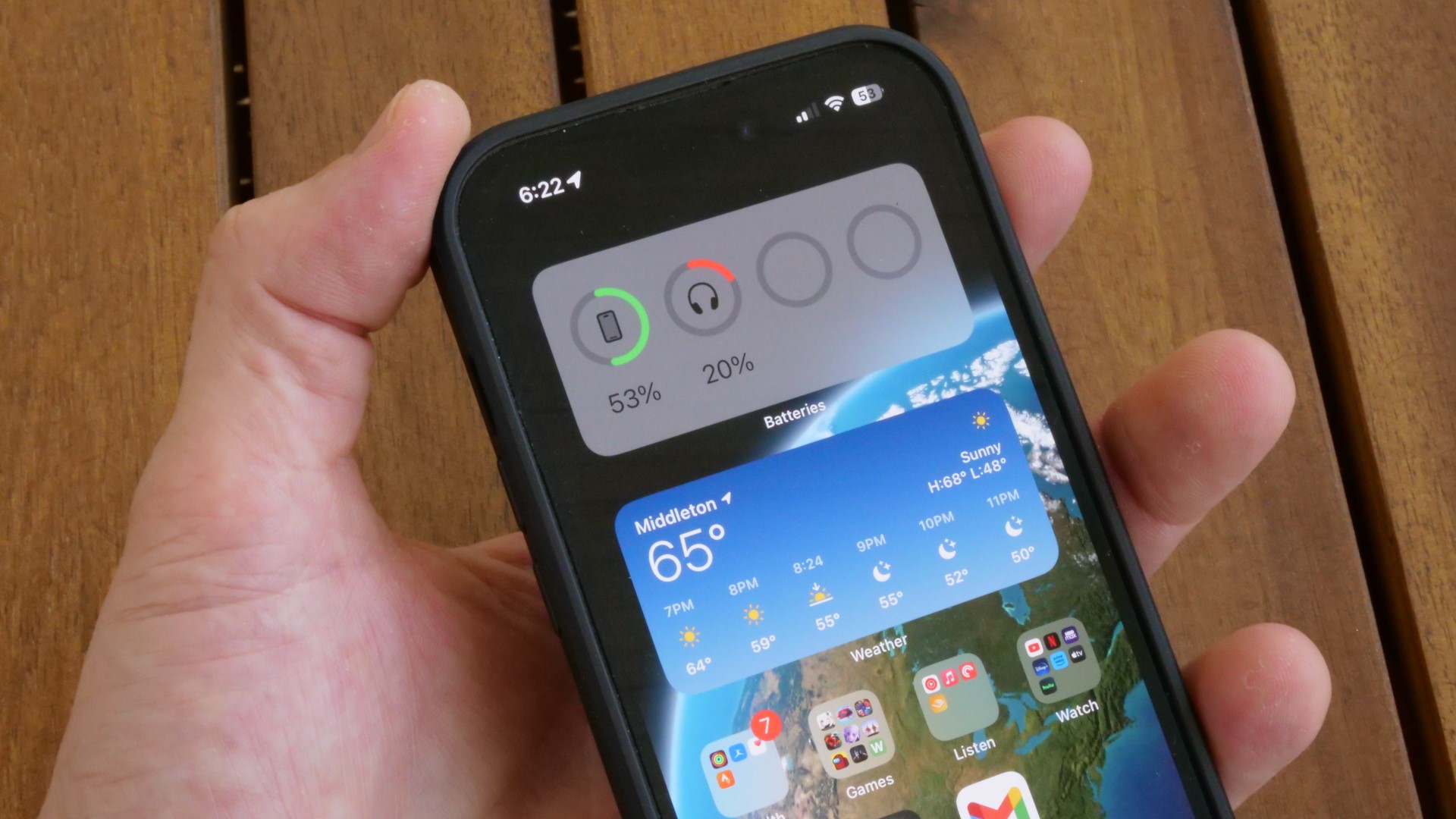
Yikes! After the iPhone 12 models took a serious hit to battery life with Apple’s first foray into 5G it seemed like Cupertino cracked the case with the iPhone 13 bouncing back in a big way. When the iPhone 14 Pro came through our testing lab I was disappointed to see it lasted almost two hours less than its predecessor at 10 hours and 13 minutes.
It’s not a terrible result, for that see the Pixel 7 Pro, but a loss of two hours is considerable. After spending half a year using it I will say that the battery life is back to being a day-to-day concern for me with the iPhone 14 Pro and it gets completely obliterated by anything taxing like turn-by-turn navigation. I killed it in under three hours when using navigation, which was shocking. I rarely make it through a day without topping up the phone for 20-30 minutes, and that’s just not something I thought about with the iPhone 13 Pro.
It’s not a dealbreaker, just something to be aware of. I never forget to plug the iPhone in or drop it on the Qi charger in my car even on short trips and I’ll carry a small battery pack with me if I’ve got a full day planned and am not sure when I’ll have access to a charger. Speaking of chargers, the iPhone is still rated for a max of 20W, but if you want the fastest charging possible look for a USB-C charger that’s at least 30W and pair that with a USB-C to Lightning cable. There’s ample evidence that since the iPhone 13 almost all models will occasionally spike up above the stated 20W max to 25W or even 29W, so you’ll eke out a slightly faster charge.
I don’t want to overstate the concern, the Pixel 7 Pro gets even less battery life and I think that’s a compelling phone. However, unlike last year the iPhone 14 Pro battery life is something to keep your eye on and it may be a tipping point for you to either opt for the much longer-lasting iPhone 14 Pro Max or to wait and see if Apple fixes it on the iPhone 15 Pro.
iPhone 14 Pro cameras
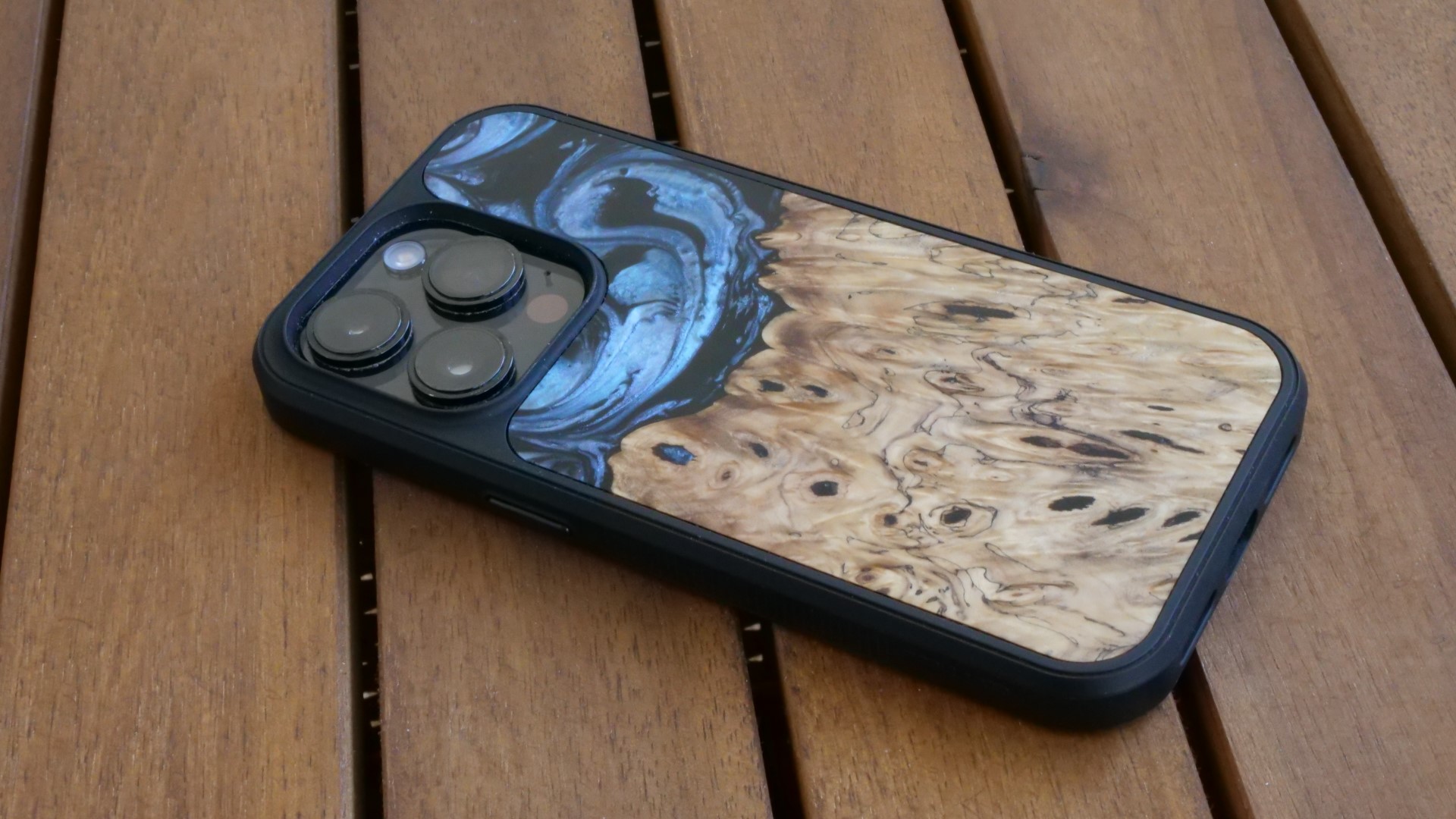
The iPhone 14 Pro cameras are a bit of a con as the hardware is an irrefutable upgrade from the iPhone 13 Pro with a new 48MP primary wide sensor at f/1.8 and a new 12MP ultrawide sensor that is twice the size of last years for improved low-light performance. Only the telephoto and front-facing cameras are largely unchanged, with Apple sticking to 12MP for each with a 3x zoom and an f/2.8 aperture on the telephoto and an f/1.9 aperture for selfies. However, these upgrades just aren’t always showing up in the photos.
Apple’s new Photonic Engine was meant to boost the iPhone’s computational photography performance, but instead, it feels like a step back at times. Don’t get me wrong, I’ve gotten some phenomenal photos with the iPhone 14 Pro over the last 6 months and there is still no phone I would rather have in my hand for portrait shots or video, but between some difficulties focusing and over-processed HDR shots at times, I don’t have the faith that it will reliably deliver great snapshots that I did in the past.
The first photo from the primary camera is a sunset on a beach in Florida. This one might be my favorite encapsulation of the duality of the iPhone 14 Pro cameras as it handled the sky and sun flawlessly with gorgeous reproduction of the improbably vivid coloring, but look at the water and you have that overprocessed HDR that dips into the surreal for a photo that just doesn’t need it.

Next up, a look at a day vs. night shot from the dreary Wisconsin winter. While the sky in the daytime shot of this fountain got flattened out excessively, I like how the iPhone captured the color shift on the fountain itself and the proud mustard yellow of the Mustard Museum sign. Turning to the same shot at night the iPhone got pretty wild with the low-light processing and casting a warm yellow hue over everything while also eliminating detail from the fountain.


Returning to positivity, the final shot returns to Florida during the day. I love how the iPhone handled this photo of my family wading out to a pontoon boat with incredibly sharp detail of the rocks below the gently lapping waves and the vibrant blue of the sky is captured perfectly without being overdone.
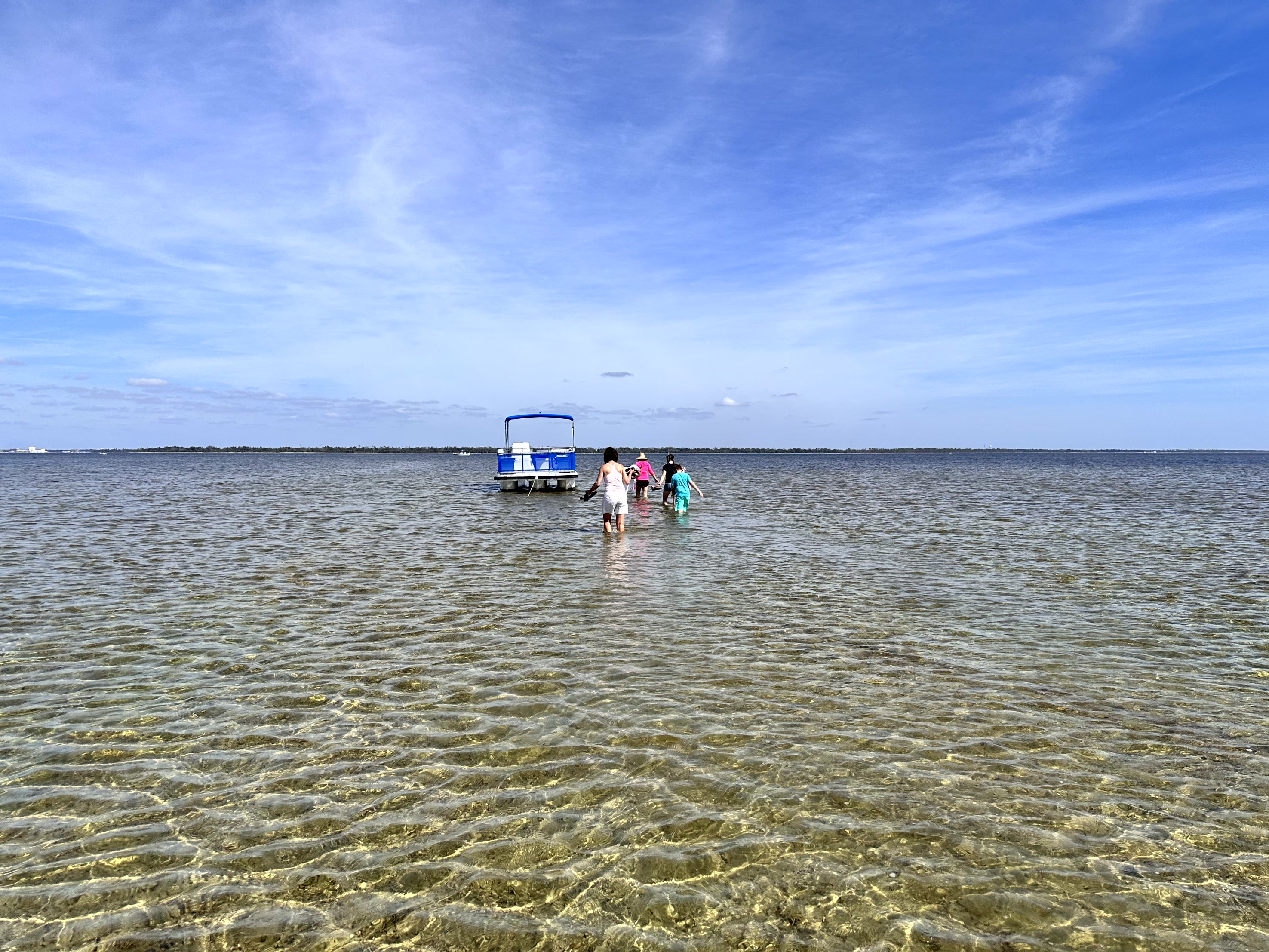
Turning to the ultrawide, it’s a fairly similar story with a mix of success and failure. I’ll start again in Florida with a shot of the beach during the day with some seagulls taking off in the distance. While the sky was a vibrant blue, it took that and ran with it a little too hard in this case as the upper-left section of the photo fully departs with reality. It’s an otherwise solid shot with sharp detail in the sand and in the distant seagulls.
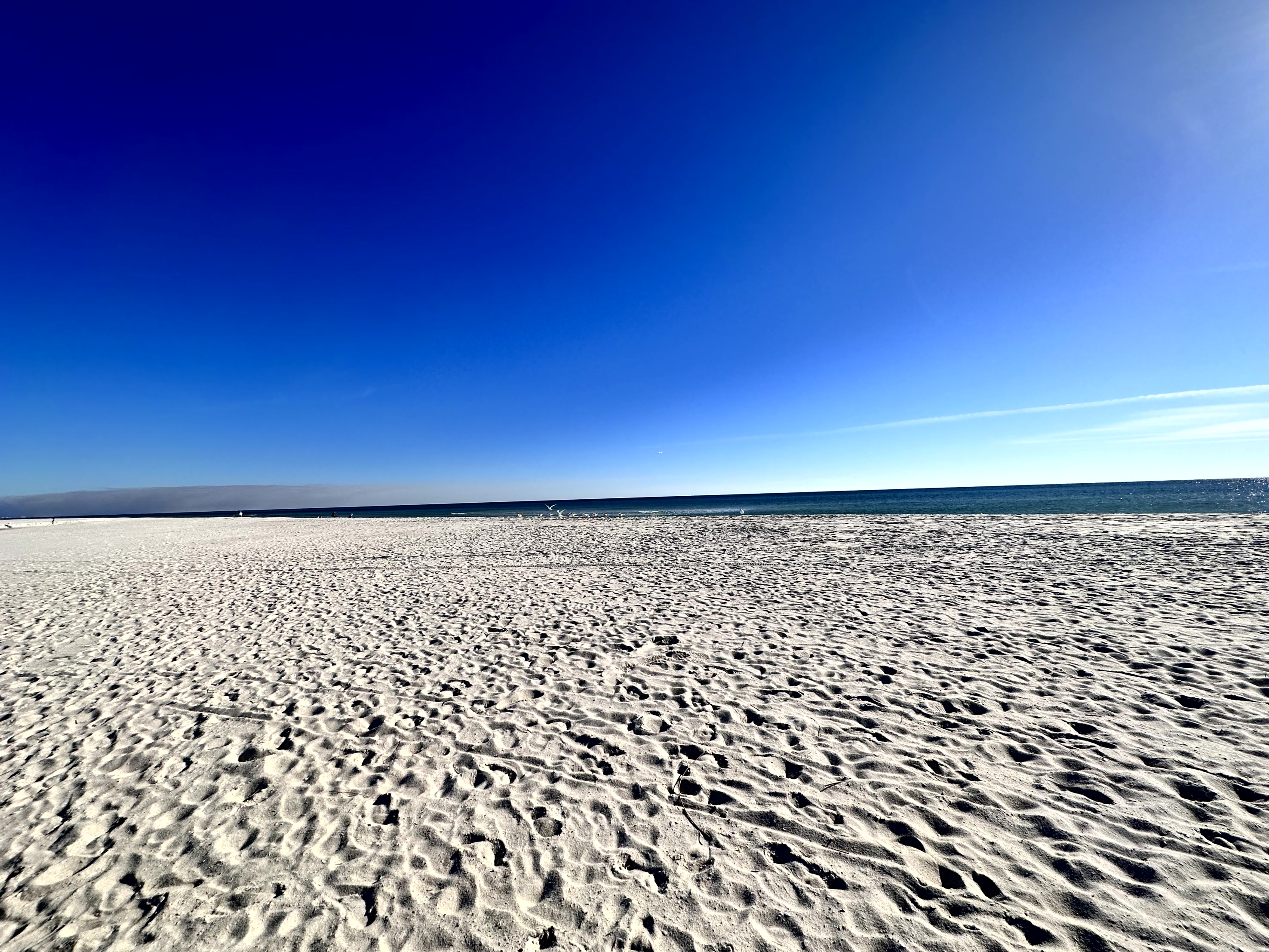
Returning to the fountain in Wisconsin — thank goodness winter is over — things don’t look so great in the ultrawide. You can see a lot of warping looking at the red car at the right edge of the photo, you can see a lot of warping, which happens with ultrawide sensors, but you’d like to see Apple’s computational photography combat it a little better than that. As for the fountain itself, a lot of detail is lost, which is surprising at that distance in daylight. Turning to the same shot at night the natural vignetting from the low light is masking the warping, but you’ve got a lot of grain to the sky and once again I would hope for better detail on the fountain itself.


Taking a look at the telephoto shots, I snapped a few photos of this nesting goose at a pond, which is not a creature that you want to get too close to and while it’s still a little contrasty for my tastes, I think the detail is excellent.

Back to Florida for a telephoto shot of a heron, I can’t wait for Apple to hopefully bump up the optical zoom on the iPhone 15 Pro Max so I can get a little closer, but the 3x zoom did well here. The trees in the distance pick up a little of that excessive contrast, but the foreground and the heron itself are well rendered with solid detail and the colors are otherwise all spot on.

Last up for photos is the area where the iPhone hasn’t lost a step and that’s portrait shots and selfies. The iPhone remains unmatched with its edge detection ensuring that creamy bokeh stays in the background where it belongs. The first shot is a little out of the box, but this walking leaf posed so nicely that I had to use it as the detail is incredible, as is the flawless fall-off from the close-focused subject. Finally, my selfie shows off the solid edge detection dealing effectively with my often uncontrolled hair.
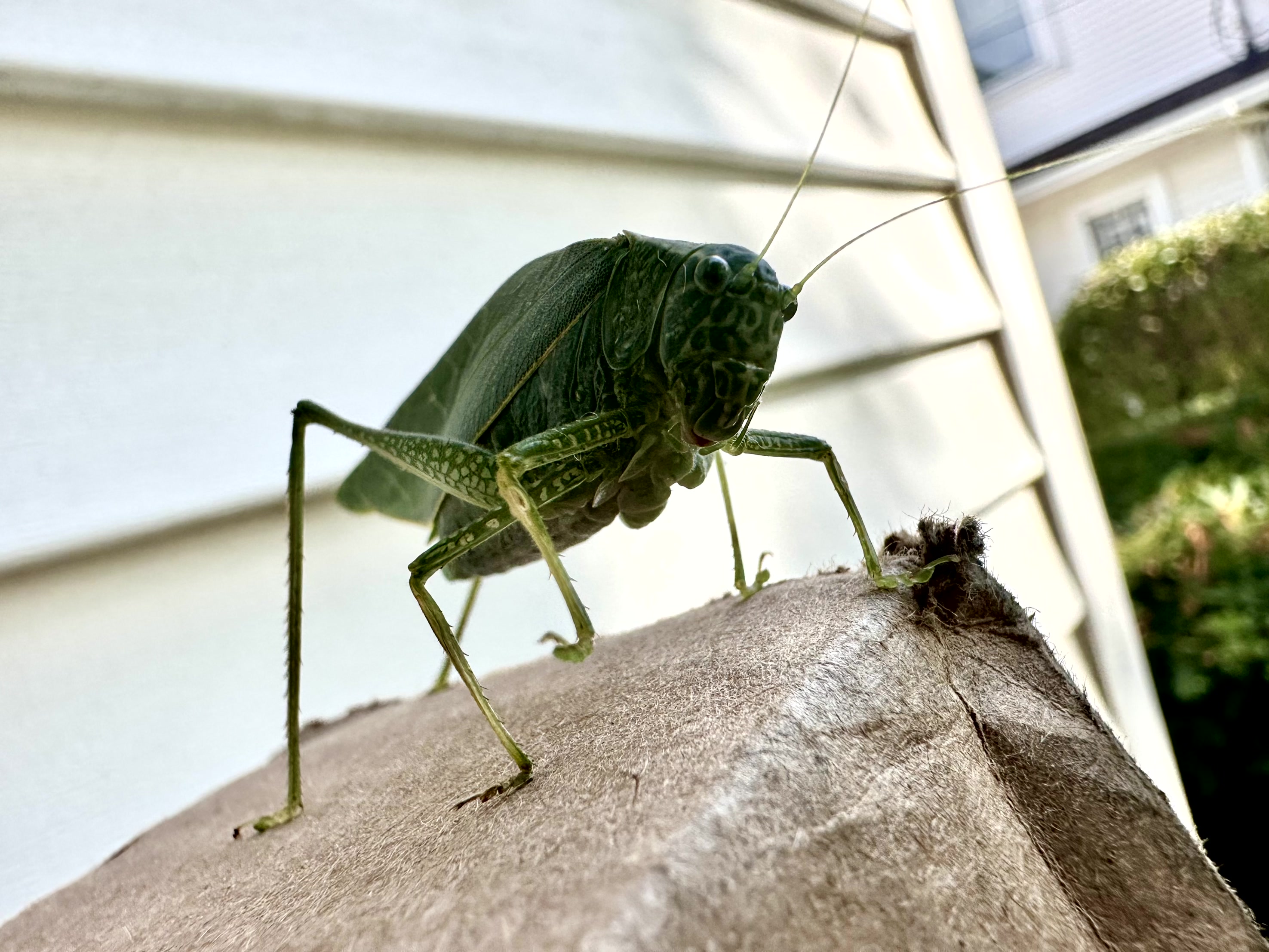

Video also remains the domain of the iPhone with everyone else just chasing it. It’s not the specs, the 4K at 60fps and 1080p at 120fps aren’t the pinnacle of mobile video. However, the quality of the video, the efficacy of the sensor stabilization (particularly when paired with the new Action Mode), and if you feel like tinkering there’s the stunning bokeh with Cinematic mode, all of these are out of reach of the Android competition. Whether you are just capturing your life or you are capturing video professionally as a content creator, there is no better phone for it than the iPhone 14 Pro or Pro Max.
iPhone 14 Pro software
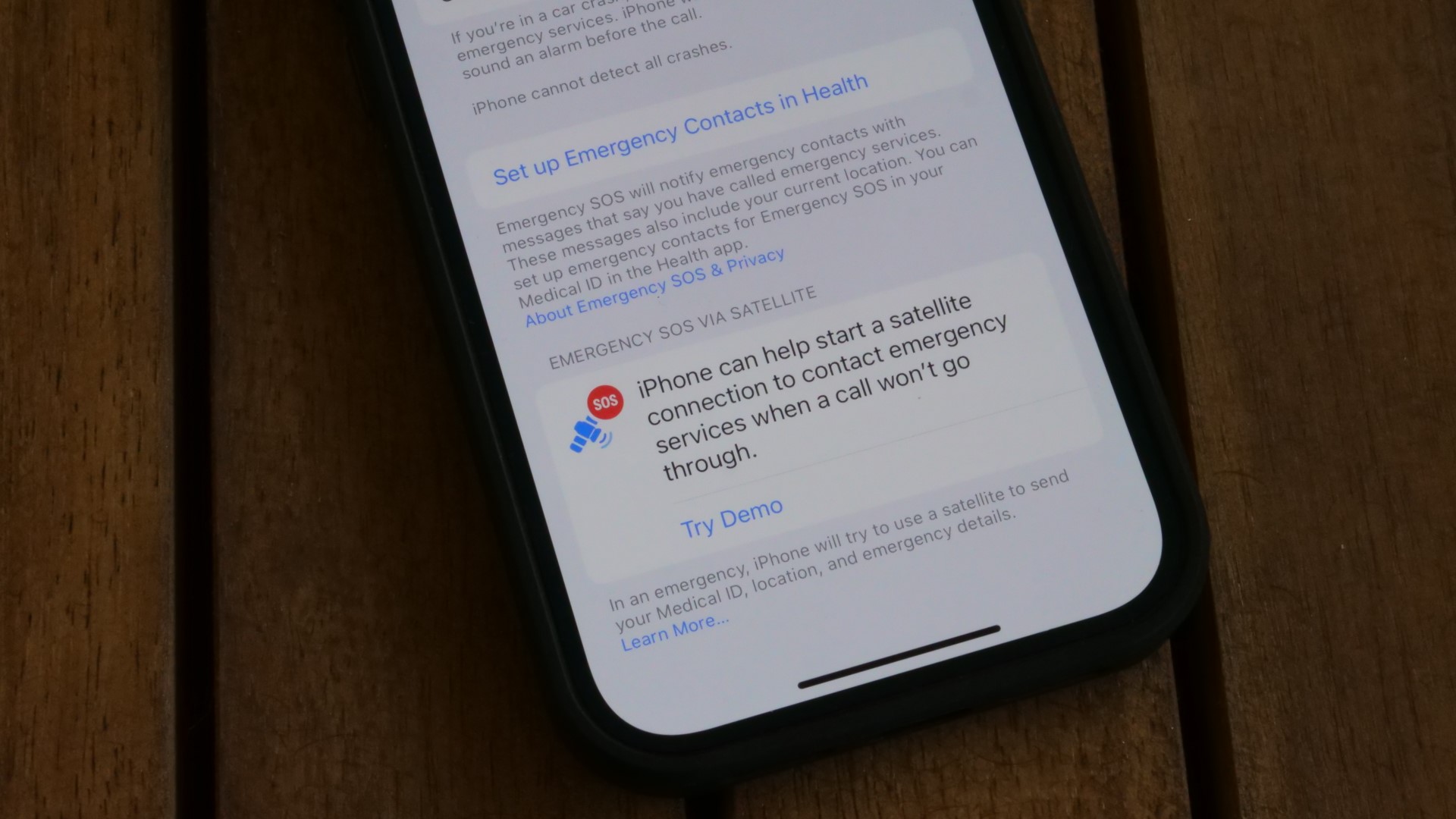
The iPhone 14 Pro runs iOS 16 and it has continued to receive some important updates since its debut last fall. While it wasn’t a revolutionary update to iOS, one key advantage that Apple will always retain over most competitors is its reliable day-one update to all devices and update longevity at roughly 5-6 years.
But returning to what is new in iOS 16, we got the ability to undo send in iMessage, Lockdown Mode for the aggressively security conscious, haptic support for the keyboard, improved bokeh on the iPhone 13 and up, improved Siri dictation, and more. Nothing particularly groundbreaking, but some nice quality-of-life upgrades.
I’ve already griped about the lack of extensive software support for the Dynamic Island, so I won’t go on about that, but iOS 17 is also rumored to improve stability, which I’ve found more of a concern with the iPhone 14 Pro on iOS 16 than any iPhone in the last several years. Some of it is 3rd party software, like audio stopping randomly when I open Twitter, but others are system issues like Wi-Fi disconnecting, SOS popping up inexplicably, or one that I haven’t experienced myself, the random calls to 911 due to faulty crash detection.
All-in-all it’s been a less seamless experience on the “it just works” phone than I’ve grown accustomed to. So while I know everyone wants to see incredible new features, I’d be happy to see Apple take it easy and get the existing software under control.
Bottom Line
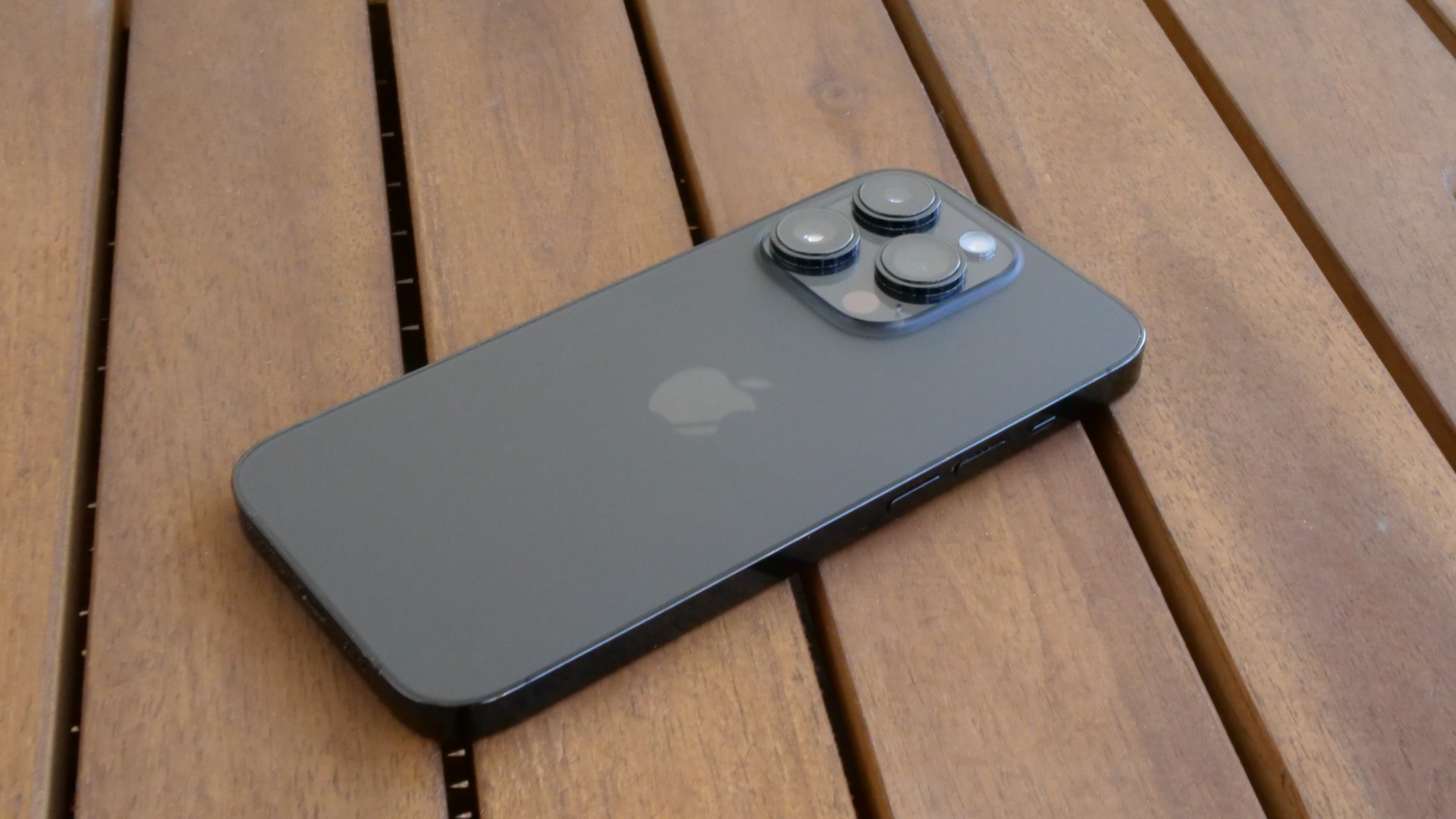
To some degree, the iPhone 14 Pro is a victim of its predecessor's success. The iPhone 13 Pro enjoyed a long reign atop our best smartphones and our own Kimberly Gedeon even recently named it the best overall iPhone to buy right now, a recommendation that I wholeheartedly agree with.
The iPhone 14 Pro stumbles in a few key areas, battery life being the most problematic for me, but the less predictable photos are a frustrating step backward as well. The latter may still be solved with software tweaks or you can tinker with Photographic Styles or post-processing to tune it more to your tastes, but battery life isn’t going to get better at this point.
There is still plenty to recommend about the iPhone 14 Pro; there’s no phone more powerful, the display is fantastic, the video quality is completely unmatched, and Apple’s track record for software support is similarly unimpeachable. However, at this stage in its lifecycle, I would recommend waiting for the iPhone 15 Pro. If you need a new phone today either opt for the iPhone 14 Pro Max or pick up the iPhone 13 Pro for less knowing that you should get a solid trade-in value for it this fall if the iPhone 15 Pro is too amazing to pass up.







